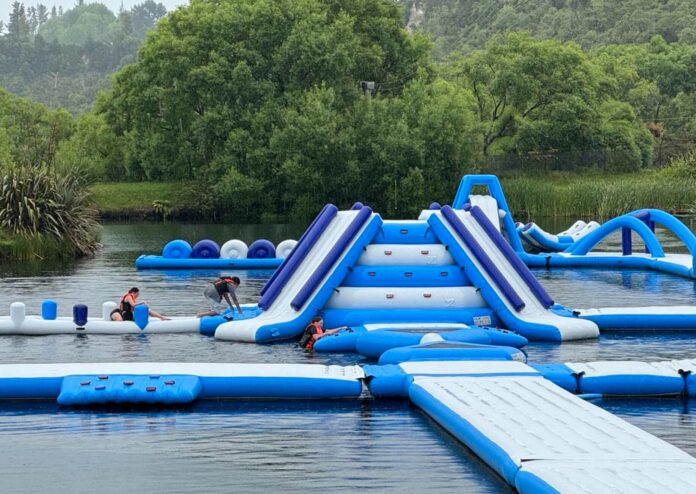Biosecurity New Zealand has temporarily closed a small water park in Taupō following the discovery of the invasive freshwater gold clam.
“After confirming the presence of the clam in the lagoon at Lake Taupō Aqua Park, Biosecurity New Zealand has worked with the operators of park around the temporary closure, and thank them for their cooperation,” says Biosecurity New Zealand director of readiness and response, John Walsh.
“We encourage anyone who has been at the aqua park in the past week to wash their togs and towels in hot water and thoroughly dry them for at least 48 hours before using them in any other river or lake.”
The freshwater gold clam was seen by Biosecurity New Zealand staff this week, who were inspecting the lagoon following a positive environmental DNA test.
Mr Walsh says the clam is contained to the lagoon.
“The lagoon at the Lake Taupō Aqua Park doesn’t discharge water into any other body of water, including Lake Taupō and the Waikato River.”
“Because of this, the most likely way that clams could spread from the lagoon would be human activity, so temporarily closing the lagoon while we look at longer term options for dealing with the clams there is the best way to avoid this.
“We think the clam has likely been in the lagoon for two to three years.
“We’ve increased our surveillance in the surrounding area in response to this find, and so far there are no indications of the clam in any nearby waterways including the Waikato River and Lake Taupō.”
Biosecurity New Zealand has a national surveillance plan for the clam in place, with a primary focus of detecting any spread of the clam beyond its current known locations on the Waikato River and now, the Lake Taupō Aqua Park.
More information about the clam and the biosecurity measures in place can be found on the Biosecurity New Zealand website.



